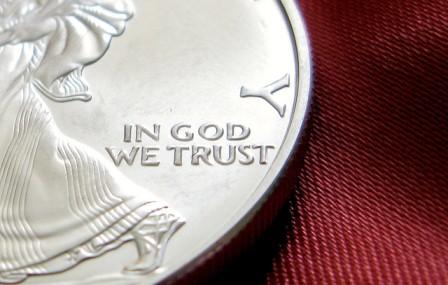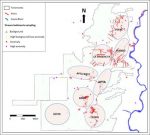
Gold prices hovered close to $1725 an ounce during this morning’s London trading, holding gains made overnight in Asia, as stocks and commodities also recovered some ground lost last week, after news that a deal may be achieved in time to avoid so-called fiscal cliff of US tax rises and spending cuts currently scheduled for the start of 2013.
Silver bullion rallied back above $32.70 an ounce, recovering Friday’s losses, while US Treasury bond prices fell along with the Dollar.
“[Silver] is still respecting its long term uptrend, [but] momentum has been very uninspiring,” says the latest technical analysis from bullion bank Scotiabank.
Congressional leaders and the White House should be able to agree a deal to avoid the fiscal cliff “within several weeks”, US Treasury Secretary Timothy Geithner said Friday.
Negotiations last week produced agreement that reforms are needed to the US tax code and to so-called ‘entitlement’ programs, press reports say.
“If the parties in the US reach agreement, that would remove uncertainty and gold’s safe haven status,” reckons Ole Hansen, head of commodity strategy at Saxo Bank. “But the low interest rate environment is not going to go away.”
The so-called speculative net long position of Comex gold futures and options traders – measured as the difference between ‘bullish’ and ‘bearish’ contracts – rose in the week ended last Tuesday, having fallen for the previous four weeks running, weekly data published Friday by the Commodity Futures Trading Commission show.
“The positive reaction apparent in these numbers was largely due to the successful re-election of President Obama,” says Marc Ground, commodities strategist at Standard Bank.
“Participants were emboldened by the belief that an Obama win would ensure that the Fed will continue with its accommodative stance. Strong physical demand also helped sustain the upward momentum.”
The volume of gold bullion held by exchange traded funds tracked by Reuters rose to a new record last Friday, at just under 2346 tonnes. Holdings in the world’s largest gold ETF SPDR Gold Shares (GLD) also rose to a new all-time high, ending last week at 1342.6 tonnes.
Net speculative length among silver futures traders also rose last week, like gold breaking a four-week losing run.
“However, the 116.5 tonne increase of the past week appeared even more insipid than was the case for gold,” says Standard Bank’s Ground, “given that silver has seen 1,287.3 tonnes liquidated the previous four weeks.”
For commodities as a whole, Friday’s CFTC data show a six straight decline in net long positioning among managed money, the longest run of weekly falls since 2008, Bloomberg reports.
“I am not bullish on commodities,” says Martin Murenbeeld, chief economist at Canadian wealth management firm DundeeWealth. “I don’t think we are going to see improvement in the world economy for some time as there are too many problems.”
On the currency markets the Euro rallied against the Dollar, making up most of the ground it lost last Friday.
The Yen meantime fell to its lowest level against the Dollar in seven months this morning, ahead of tomorrow’s Bank of Japan interest rate decision, following the decision by Japan’s prime minister Friday to call a general election for December 16.
The leader of the opposition Liberal Democrat Party, which is ahead in the polls, has called for the BoJ to print “unlimited Yen” and set interest rates below zero if necessary.
“Continued talk and questions over potential changes for the BoJ has weighed on the Yen,” says Audrey Childe-Freeman, head of foreign exchange strategy at BMO Capital Markets. “It’s most unlikely the BoJ will make major changes this meeting, but the trend seems to be changing.”
Over in Europe, Bundesbank president Jens Weidmann told an audience at Euro Finance Week in Frankfurt that giving the European Central Bank supervisory powers over financial institutions could create a conflict of interest with monetary policy.
“Both areas must therefore be strictly separated,” said Weidmann. “This separation is doable, but difficult – difficult from an organizational viewpoint and difficult from a legal viewpoint.”



 Follow us on Twitter
Follow us on Twitter Become our facebook fan
Become our facebook fan










Comments are closed.